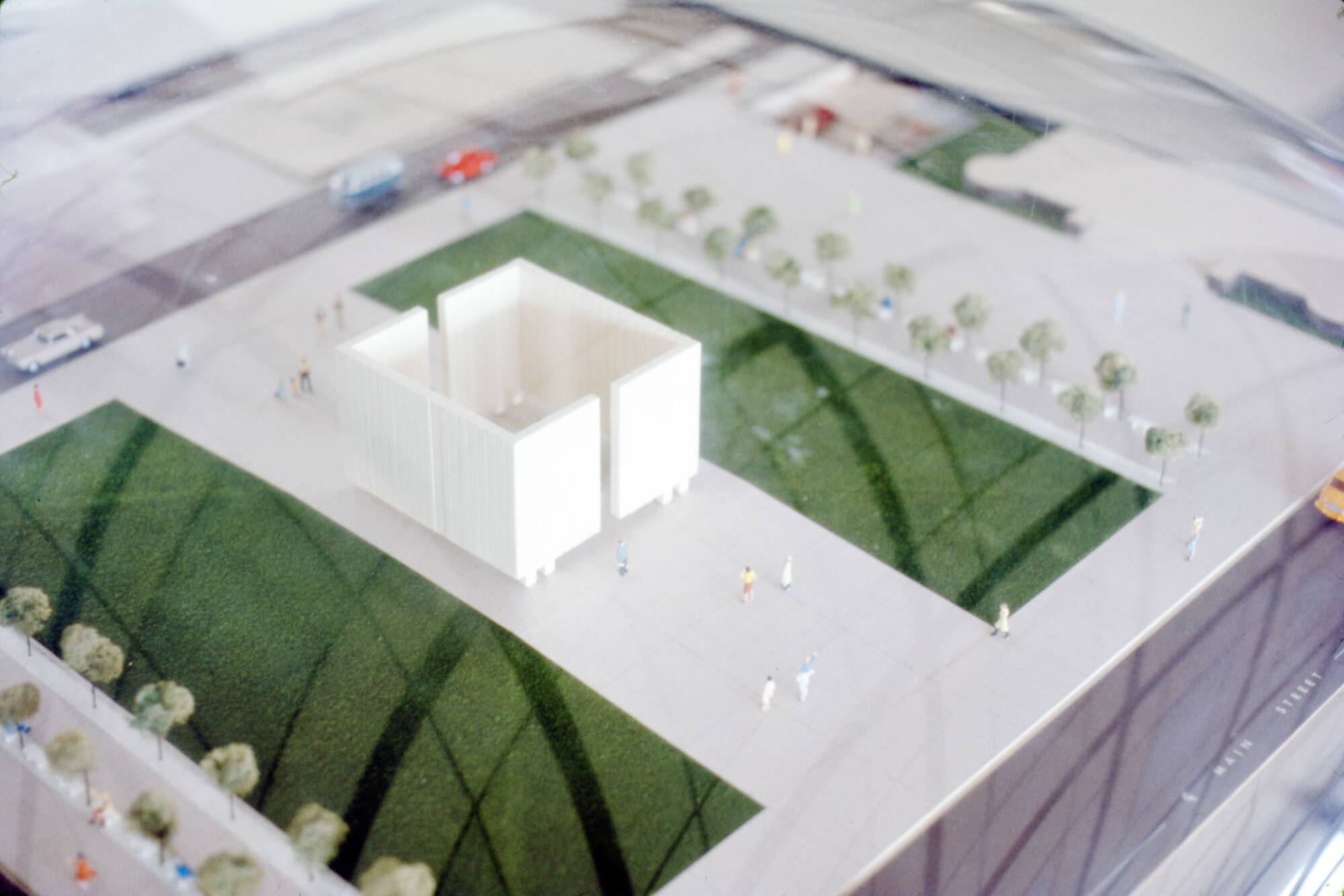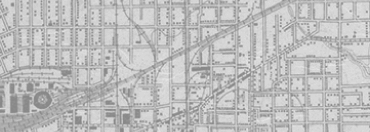


Back
Image of a scale model of the John F. Kennedy Memorial in Dallas, Texas
Original 35mm color image on Kodak Ektachrome Transparency slide taken by amateur photographer George Reid. Image shows a scale model of the John F. Kennedy Memorial in downtown Dallas, Texas from June 1969. The memorial was designed by architect Phillip Johnson and opened in 1970.
Image of a scale model of the John F. Kennedy Memorial in Dallas, Texas
June 1969
Film
2 x 2 in. (5.1 x 5.1 cm)
George Reid Collection/The Sixth Floor Museum at Dealey Plaza
1996.014.0067
George Reid was a longtime John F. Kennedy supporter who campaigned for him in Texas. He also filmed home-movie footage of President Kennedy at Love Field in Dallas, and in Dealey Plaza on several occasions in the 1960s. - Stephanie Allen-Givens, Collections and Exhibits Manager
Renowned American architect Philip Johnson's design is a cenotaph, or "open tomb," that symbolizes the freedom of John F. Kennedy's spirit. The memorial, a square, roofless room, 30 feet high and 50 by 50 feet wide, sits in the middle of the block with narrow openings facing north and south.Eight columns extend to the ground, acting as legs that seem to hold up the monument. Each column ends in a light fixture. At night, the lights create the illusion that the light itself supports the structure. These vertical elements, rigorously separated from each other and individually poured, seem held together by an unseen, invisible force. The architect once called it a "magnetic force" and suggested a connection to the charisma of the living John F. Kennedy.Visitors enter the room to face a low-hewn granite square in which the name "John F. Kennedy" is carved. The letters are painted gold to capture the light from the white floating column walls and the pale concrete floor. These words are the only written message in the empty room, as the space was intended for reflection and remembrance. - Stephen Fagin, Curator

Image of a scale model of the John F. Kennedy Memorial in Dallas, Texas
Original 35mm color image on Kodak Ektachrome Transparency slide taken by amateur photographer George Reid. Image shows a scale model of the John F. Kennedy Memorial in downtown Dallas, Texas from June 1969. The memorial was designed by architect Phillip Johnson and opened in 1970.
Image of a scale model of the John F. Kennedy Memorial in Dallas, Texas
June 1969
Memorials
John F. Kennedy Memorial
Photographs
Reid, George
Dallas
Film
2 x 2 in. (5.1 x 5.1 cm)
George Reid Collection/The Sixth Floor Museum at Dealey Plaza
1996.014.0067
George Reid was a longtime John F. Kennedy supporter who campaigned for him in Texas. He also filmed home-movie footage of President Kennedy at Love Field in Dallas, and in Dealey Plaza on several occasions in the 1960s. - Stephanie Allen-Givens, Collections and Exhibits Manager
Renowned American architect Philip Johnson's design is a cenotaph, or "open tomb," that symbolizes the freedom of John F. Kennedy's spirit. The memorial, a square, roofless room, 30 feet high and 50 by 50 feet wide, sits in the middle of the block with narrow openings facing north and south.Eight columns extend to the ground, acting as legs that seem to hold up the monument. Each column ends in a light fixture. At night, the lights create the illusion that the light itself supports the structure. These vertical elements, rigorously separated from each other and individually poured, seem held together by an unseen, invisible force. The architect once called it a "magnetic force" and suggested a connection to the charisma of the living John F. Kennedy.Visitors enter the room to face a low-hewn granite square in which the name "John F. Kennedy" is carved. The letters are painted gold to capture the light from the white floating column walls and the pale concrete floor. These words are the only written message in the empty room, as the space was intended for reflection and remembrance. - Stephen Fagin, Curator








